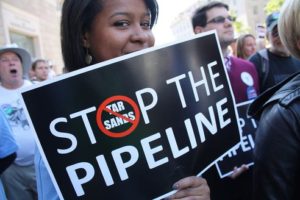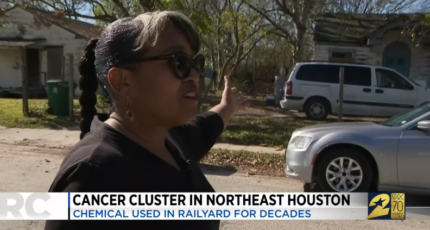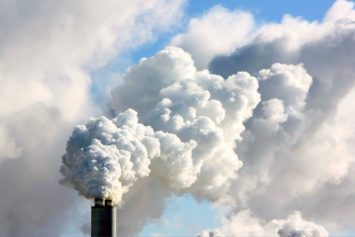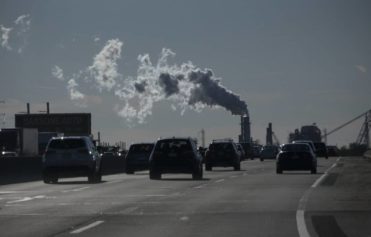
Issues like improving educational equality, increasing minimum wage and providing support for the middle class have always been noted as important issues to the Black community, but in predominantly Black neighborhoods all across America environmental racism has long been a major concern that might eventually affect Black voters’ decision-making.
Dr. Robert Bullard, the Dean of the Barbara Jordan-Mickey Leland School of Public Affairs at Texas Southern University and former director of the Environmental Justice Resource Center at Clark Atlanta University, explained that the Keystone XL project presents nothing but major problems and serious health risks for the low-income communities it would impact.
“Environmental pollution and contamination and environmental degradation impact low-income and people of color disproportionately,” Dr. Bullard told Atlanta Blackstar. “But our stories don’t get told and when the story gets out it’s treated as if everybody is impacted the same and that’s not true.”
President Barack Obama has been adamant about his general disapproval of the negative environmental impact that the pipeline could have and insists that it isn’t a worthy exchange for what will be mostly temporary jobs that legislators are using to defend the project as a “job growth” effort.
“We hope President Obama will now drop his threat to veto this common-sense bill that would strengthen our energy security and create thousands and thousands of new, good-paying American jobs,” said Republican House Speaker John Boehner.
The problem, however, is that environmental experts say the “common-sense” thing to do would be to scrap the Keystone XL project all together, especially when considering the impact it would have on the Black community.
“These communities already are over burdened with refineries and with chemical plants, they’re already over burdened,” Dr. Bullard, who is known as the ‘father of environmental justice,’ added. “They’re already sicker than the rest of the general population. There is already more pollution in these communities than in the general population. So you’re talking about adding an additional level and layer of emissions, pollutions, trucks. You’re talking about all kinds of potential spills and explosions.”

“Maybe this is just how pipelines celebrate January, but all over the country, pipelines new and old are popping off like roman candles,” MSNBC’s Rachel Maddow noted of the boost in pipeline accidents.
These pipelines, just like the proposed Keystone XL project, are strung together using low-income communities to house the refineries and environmentally harmful infrastructure that have left the predominantly Black communities they impact looking like war zones.
“People who have money, they leave. They just move out,” Dr. Bullard explained of the communities that are forced to deal with such environmentally harmful projects. “People who don’t have resources, they are stuck…and you get this community that looks like a bomb has been dropped on it, like World War II or something.”
He said these communities soon become filled with boarded-up abandoned homes while the so-called job creation efforts fail to actually improve employment in the neighborhoods that are impacted by the projects.
The Keystone XL pipeline would create thousands of temporary jobs to build the pipeline, but is expected to create less than 100 permanent jobs.
Generous reports indicate the project would result in about 80 permanent jobs while others, like Dr. Bullard, come up with estimates closer to 50 or 60.
Even worse is that these jobs typically go to people outside the impacted communities. So while they are left dealing with pollution and health disparities, these communities don’t even get to reap the miniscule economic benefits of such projects.
The bottom line, Dr. Bullard says, is that a few dozen new jobs is not enough to justify the pollution of low-income, predominantly Black communities who have already been suffering from health disparities and economic turmoil for years.

For those reports that suggest the pipeline actually wouldn’t have a massive environmental impact, Dr. Bullard says it’s nothing more than propaganda at play and that people need to realize the entire country won’t be impacted the same. That is, after all, the core premise of environmental racism.
So while some communities, predominantly the affluent suburbs that are always protected from such environment hazards, won’t immediately see the negative impact of the pipeline, low-income communities will yet again be faced with the consequences of heavy pollution and life-threatening health hazards.
Since the Keystone XL pipeline would cross the U.S-Canadian border, President Obama will have the final say on the project and will ultimately decide whether or not more Black communities are forced to suffer while the rest of the nation is blinded by empty promises of economic gain.


